Tesla, General Motors, and Volkswagen are betting big on the world’s largest market for electric vehicles. But the country’s domestic manufacturers, like BJEV, have a huge head start.

INSIDE BEIJING ELECTRIC VEHICLE’S headquarters, a glassand-steel complex on the Chinese capital’s edge, a cafeteria awaits renovation so that cooks can crank out pizza and other Western fare for the posse of foreigners the company expects to hire. “We need to have a more international feeling,” says Wang Shitao, a Chinese engineer who earned a master’s degree in Germany in energy storage before returning to his country to ply his skills in its new and booming electric-car industry. “You cannot force them to eat Chinese food all the time.”
Nor, the Chinese government has decided, can bureaucrats continue to aggressively steer Chinese electric-car buyers to domestic brands. The inescapable reality: Beijing Electric Vehicle needs a tune-up.
All but unknown outside its homeland, Beijing Electric Vehicle, or BJEV, is China’s largest maker of pure-electric vehicles and the world’s No. 2 manufacturer, behind Tesla. A decade old, BJEV owes its growth to state support.
But now the Chinese government is ratcheting back that aid.
It’s slashing customer subsidies for the cheapest electric cars, which are the bulk of BJEV’s sales. And it’s opening the country’s electric-vehicle market to greater competition from the West’s better-established automakers, a move widely seen as a bid to tamp down the global trade war.
As a result, BJEV must get a lot more sophisticated, and fast. Thus its plan to hire an army of electric-car experts from abroad.
This story is from the April 2019 edition of Fortune.
Start your 7-day Magzter GOLD free trial to access thousands of curated premium stories, and 9,000+ magazines and newspapers.
Already a subscriber ? Sign In
This story is from the April 2019 edition of Fortune.
Start your 7-day Magzter GOLD free trial to access thousands of curated premium stories, and 9,000+ magazines and newspapers.
Already a subscriber? Sign In
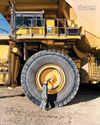
THE NEW GOLD RUSH
Gold prices have soared amid global uncertainty and a central-bank-driven buying spree. But this time, the gold mining industry looks very different.

A New Season for Giving
As the PGA TOUR kicks off its 2025 season alongside its sponsors in Hawai'i, the organization is continuing to make an impact in local communities.
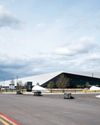
WELCOME TO ELONTOWN, USA
The small town of Bastrop, Texas (pop. 12,000), has become a home base for Elon Musk's business empire. What comes next is anyone's guess.
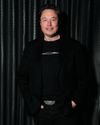
100 MOST POWERFUL PEOPLE
Our inaugural, authoritative ranking of the leaders whose innovation and impact have elevated them to the top of the business world.

ARE CEO SABBATICALS THE ULTIMATE POWER MOVE?
WHEN VENTURE capitalist Jeremy Liew and his wife were dating, they talked about how one day they would take a year to travel the world. \"That's how we'd know we'd made it,\" Liew says.
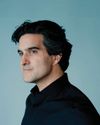
WHAT ARE THE BEST METRICS FOR MEASURING A STARTUP'S POTENTIAL?
IN HIS 2012 ESSAY \"Startup = Growth,\" Paul Graham talks about a 5% to 7% weekly growth rate as table stakes for startup success. If you're growing 10%, he says, you're doing \"exceptionally well.\"
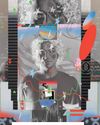
TECH POLYMARKET'S ELECTION ACCURACY MADE SHAYNE COPLAN A STAR-BUT AN FBI RAID POINTS TO TROUBLE AHEAD
IN NOVEMBER, Shayne Coplan had a week he'll remember for the rest of his life: He got a phone call from the highest echelons at Mar-a-Lago. He went on TV for the first time. And his New York City apartment was raided by the FBI.
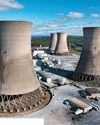
WHY BIG TECH IS THE NUCLEAR INDUSTRY'S NEW BEST FRIEND
OVER THE PAST several years, Big Tech firms like Google and Microsoft have trumpeted ambitious plans to go carbon-neutral, or even carbon-negative, by 2030. But then the generative-AI boom came along and threw a giant wrench in their plans.

WHAT PALMER LUCKEY, THE MAN REVOLUTIONIZING WARFARE, IS AFRAID OF
PALMER LUCKEY, the founder of the $14 billion Al-powered weapons startup Anduril, has become the face of change in the defense industry.
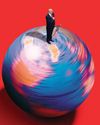
GLOBAL BUSINESS BRACES FOR TRUMP 2.0
AROUND THE WORLD in 2024, voters chose change: in South Africa, France, Britain, and Japan. But nowhere does the anti-incumbent trend matter more than in the United States.